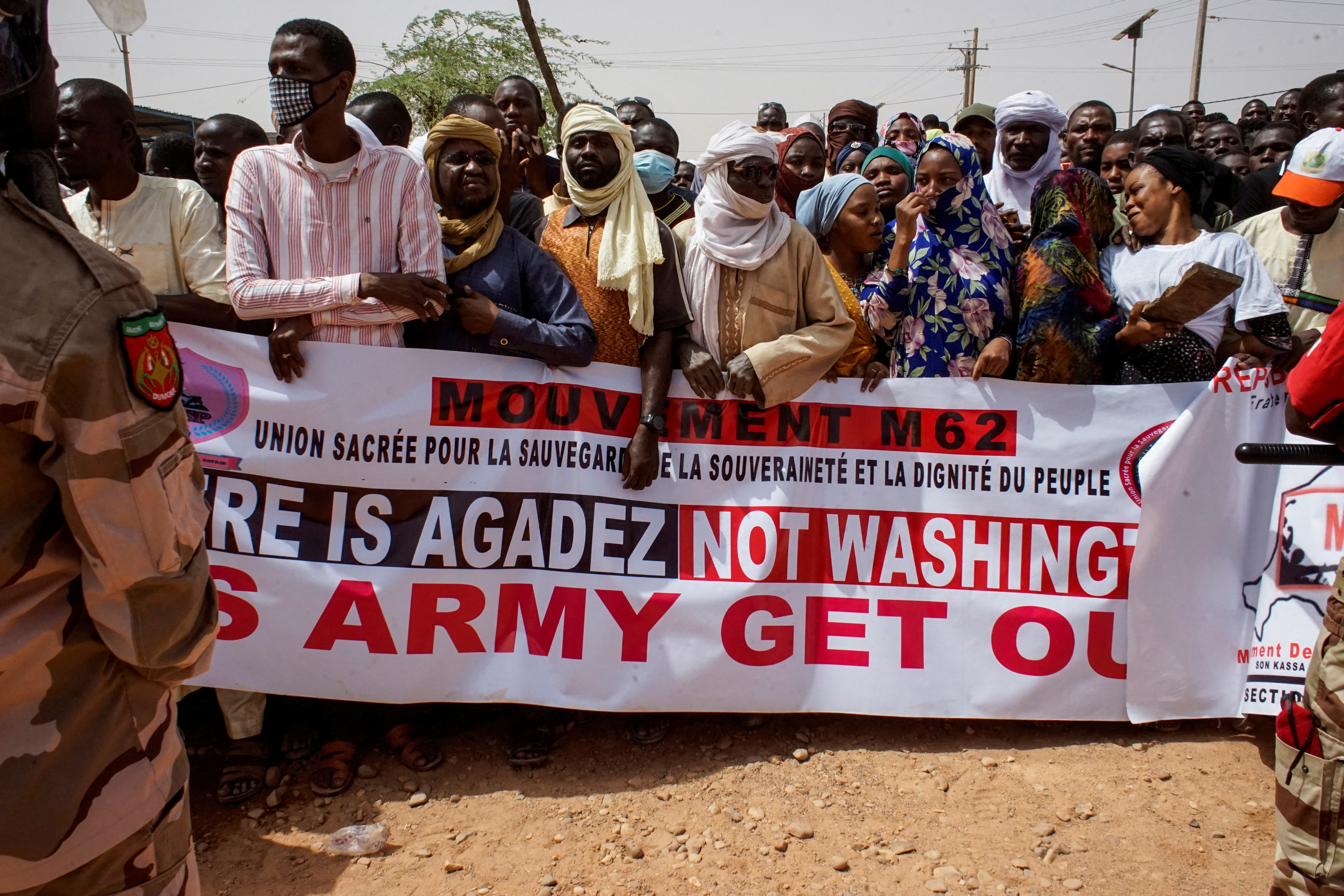US pullout from Niger driven by discord over democratic transition, official says

Nigeriens gather to protest against the U.S. military presence, in Agadez, Niger April 21, 2024. REUTERS/Stringer/File Photo Purchase Licensing Rights
WASHINGTON, April 24 (Reuters) - Niger's junta asked the U.S. to withdraw military personnel from the country over disagreements with Washington on issues including progress on the country's transition to democratic rule, a U.S. official said on Wednesday.
The United States has said discussions have begun on the withdrawal of forces from Niger, which until a coup last year had been a key partner for Washington's fight against Islamist insurgents who have killed thousands of people and displaced millions more.
"I think they asked for our withdrawal because they were not willing to satisfy the concerns that we had," said the official, who spoke on condition of anonymity. "We had concerns about the lack of movement on announcing a transition to democratic rule, and we had some concerns about the external partners that they were seeking to work with."
A source familiar with the matter last week said U.S. Deputy Secretary of State Kurt Campbell and Niger's leadership agreed that the U.S. would remove its troops from the country. There were a little over 1,000 U.S. troops in Niger as of last year. U.S. military personnel had been training local forces to fight militant groups.
U.S. officials will meet on Thursday with members of Niger's government in Niamey to discuss the withdrawal of U.S. forces from the African country, the State Department said in a written statement on Wednesday evening.
Deputy Secretary Campbell will travel to Niger in the coming months to "discuss ongoing collaboration in areas of joint interest," the State Department said.
Niger's junta previously proposed a three-year timeline for a transition back to civilian rule after the army seized power.
The U.S. official on Wednesday said Washington hoped the ruling junta would publish a transition timeline that would be relatively fast.
"Personally, I think three years is a long time. ... It's up to them to decide what the length of that transition would be. The international community would like to see it be relatively fast," the official said, adding that Washington hopes a transition timeline will be published as quickly as possible after a national dialogue is completed.
Eight coups in West and Central Africa over four years, including in Burkina Faso, Mali and Niger, have driven concerns over democratic backsliding in the region.
It was unclear which regional partners the U.S. might turn to after the withdrawal of troops from Niger. The official said Washington was not in any conversations beyond what it normally has, emphasizing that the U.S. intention is to work closely with democratic partners that welcome U.S. assistance, training and equipment.
"We've always been in discussions with them on a regular basis on what their needs are, because we all have concerns about counterterrorism. And so what the Niger situation means for the future is really still a matter of discussion," the official said.
Sign up here.
Reporting by Daphne Psaledakis; Additional reporting by Alessandra Prentice, David Lewis and Dan Whitcomb; Editing by Leslie Adler and Christian Schmollinger
Our Standards: The Thomson Reuters Trust Principles.
